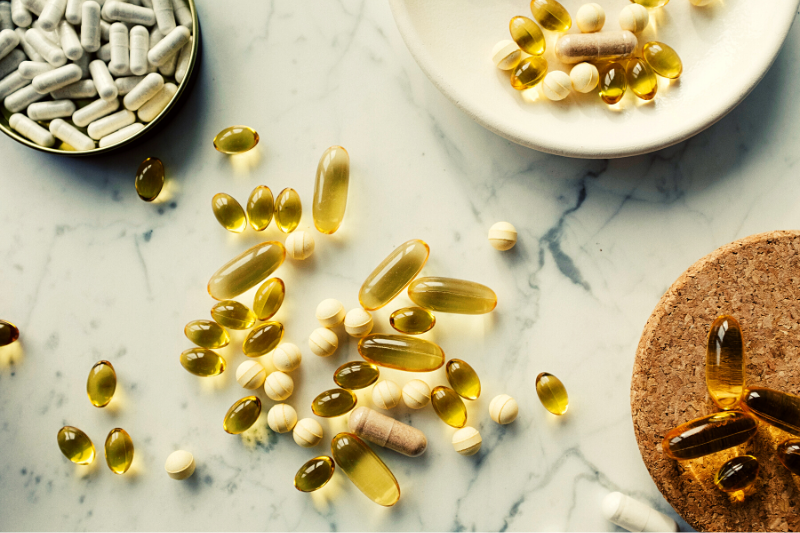Supplements: Are They Worth It?
As a fitness enthusiast, you may have recently heard that a plethora of supplements is being sold across the internet and even in health food stores that promise to help you achieve your weight-loss goals. While these products may be effective for some, if you’re interested in long-term results, there are many available products that don’t work as advertised or may even damage your health. So, what should you believe?
Over the last few years, supplements have become a hot topic in the fitness and nutrition world. Take, for example, liposomal supplements, which happen to improve the immune system immensely. That is why people are now spending more on supplements than they are on groceries or clothing! Why? Because supplements can be used to help you lose weight, build muscle, increase your energy, and overall improve your health. Our bodies need vitamins and minerals to function properly, and research has shown that taking vitamins and minerals as supplements can help improve your overall health. Why not benefit from these ‘supplements’ right now?
Supplements are little packets of unproven and often untested compounds that companies have created to supplement the diet. They are marketed to combat human ills; claiming that they do so is a common form of advertising for these products. Supplements are supposed to be used in addition to a healthy diet and exercise program, and their use is not recommended for children under 18 years of age. Some supplements can be dangerous if misused, and they should be used under the guidance of a qualified healthcare professional.
Are Supplements Safe?
As you start to look for supplements to help you feel better, you might be tempted to look no further than your local drug store. But there is reason to be wary of this option: the supplements sold at your local store have no evidence to show they work better than what you can find in your local supermarket. Supplements have become a big business, but should you believe everything you read on the internet or in a magazine? According to the Dietary Supplement Health and Education Act of 1994, or DSHEA, “Supplements” are “supplements” if they are intended to correct a dietary deficiency or supplement the diet, or if they are intended to alter the structure or function of the body.”
Supplements are a dime a dozen these days; people will buy anything with a label attached. The truth is that supplements are just as much of a scam as most other products on the market, and we are supposed to trust a label with potentially dangerous chemicals that could be completely unsafe. For this reason, it might always be recommended to consult a physician before buying any random supplement. Also, you can also do a bit of research and find trustworthy brands like Steel Supplements that can help you provide genuine and safe supplements. By doing so, you can protect yourself from fake supplements that may be harmful.
But what are supplements exactly, and why are they dangerous? The bottom line is that supplements are just what they sound like: recreational drugs manufactured to provide you with what you need to improve your life. They are formulated to support your health, but they also may contain potentially dangerous ingredients.
Benefits of Supplements
Supplements are one of the most common ways people try to take care of themselves, and many believe that these products can help prevent disease, support the immune system, improve brain function, and build muscle. Unfortunately, proper research is not widespread among the supplement community. Some supplements on the market today have never been scientifically tested for their effectiveness, while others have shown to be ineffective at their advertised benefits.
There are a lot of health supplements out there, and you have to sift through a lot of garbage to find the good ones. Every day, we find a new study that claims to have found the fountain of youth or something that will prevent Type 2 diabetes. Though some of these claims are legitimate, many are not, and too much of some can be dangerous. Given a choice between supplements that are both effective and safe, we recommend using a clinically tested product that has been proven to work. Some supplements could be far-fetched, but calcium and vitamin capsules can be beneficial because our daily diet may not provide us with such necessary nutrients. For instance, you get vitamin C from citrus fruits, vegetables, like broccoli, Brussel sprouts, etc., which you may not eat daily. And to fulfill the necessity, you can consider taking a liposomal c vitamin capsule or other similar supplements.
Additionally, you could even consider creating your own nutritional supplements using empty pill capsules and ingredients that might be beneficial to your unique health requirements. You can find capsule supplies required for making supplements on websites like https://www.capsulesupplies.com/pullulan-vegan-capsules/.
Supplements are not the “next big thing,” and for a good reason: they are almost always misunderstood and imprecise by laypeople. What’s worse, many people with the best intentions try to take supplements that they don’t need and end up harming their bodies. Supplements are a hot topic in the health and fitness community. If you’re not already familiar, supplements are substances that are ingested into a person’s diet to provide the body with a particularly beneficial effect. Many of these substances are considered “natural” or “herbal” since they come from plants or animals. However, many people are turned off by the idea of ingesting non-natural substances into their bodies.




